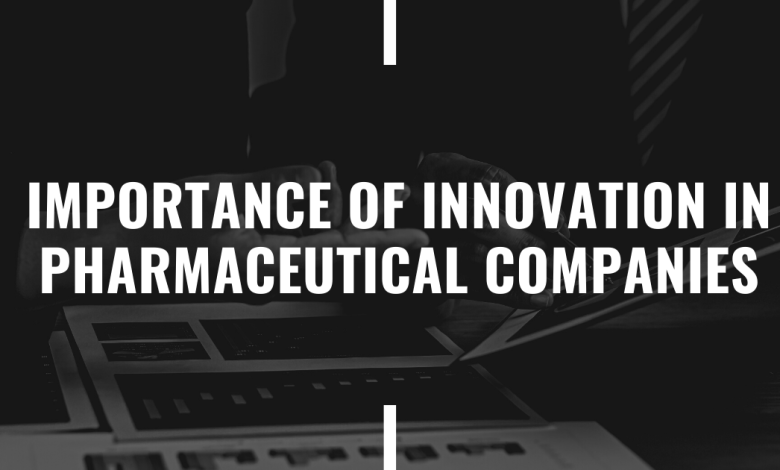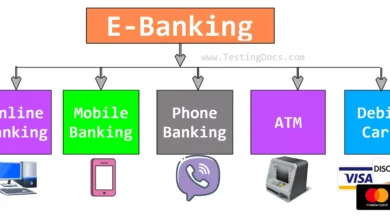
Technology helps to improve our lives, and we receive all the assistance that we need in the fight against viruses. Now every industry benefits from all high-tech technology and pharmaceuticals are not exceptional. The latest devices and instruments help to improve the workflow of pharmaceutical companies. They provide many facilities; patients can fill out the form and interact with a doctor without visiting the hospital. Because sometimes, the patient’s condition does not allow them to go out and wait for the doctor for hours.
Let’s take a look at some important information about technology in the pharma industry:
The Role of Technology in Pharmaceutical Company
Every aspect of modern human life has been touched by technology, including communication, transportation, production, and the pharmaceutical companies and medical sectors. Modern pharmacists use information technology (IT) solutions to arrange their daily work schedules better. The method is simple to apply and makes it possible to complete more work quickly and with little trouble.
handikap giriş
The pharma business also views information technology standards for cutting-edge operating procedures as crucial, with research and development (R&D) and production significantly reliant on a technology-based framework. The evolution of digital technology considers the very fact that information technology can deliver its services to a large population worldwide in a way that can be personalized and makes daily life effective, less monotonous, and reimbursable, as well as the fact that it is accurate and consistent in the use of terms and mass customization.
Here is the list of some highlighted technologies:
AR and VR
As corporations struggle to engage doctors and research timetables spin into a maelstrom of more studies. AR-VR has a lot to offer the pharmaceutical industry. AR and VR are promising technologies that can meet various objectives for the pharma business thanks to their capacity to build an engaging virtual environment with minute details.
To comprehend a migraine patient’s experiences, the giant pharmaceutical company “GSK” utilized an AR tool to mimic the migraine experience. This was a model application of augmented reality, and apps like this can tackle important issues in today’s healthcare settings, including empathy and trust.
AR-VR technologies have a limited range of applications for drug-target interaction prediction investigations. By enabling scientists to perceive the interactions more clearly and then redesign and re-engineer molecules according to site requirements, virtual reality can improve the efficiency of the pre-development phases of medicine. These technologies change the way of working in this industry.
Bar Code Identification
When used with e-prescribing platforms, bar code identification of medications has been demonstrated to decrease prescription. Delivery errors and improve medication history completeness. Contrarily, medical professionals devise ways to evade bar code identification since they believe it is time-consuming to identify medications by barcode.
To combat forgery, the Falsified Medicines Directive (FMD), a directive for Europeans. Healthcare providers, suggests particular medication recognition at the point of delivery. The method will involve barcode medicine recognition, which will greatly impact pharmacy workflow, even though the infrastructure to support this has not yet been built.
Telecare
Telecare delivers medical services and appointments to patients’ homes using an electronic communications network. Several potential benefits, including cutting travel times and healthcare costs, increasing access to treatment by removing the need for in-person doctor visits. Putting patients at the center of their care.
On the other hand, the advantages provided by telecare are dependent on diverse care scenarios and applications. Additionally, recent studies require more proof of telecare’s advantages and cost-effectiveness to warrant further investment in the technology. The pharmaceutical industry is changing, much like earlier technology.
Prices have significantly decreased while healthcare quality has improved. Although this development represents a big leap forward in technology for the pharmaceutical firm, it also gives pharmacies the ability to enhance their daily operations and deliver better patient care. The pharma sector worldwide, but mostly in big cities, benefits from technology such as medication therapy management, automated distribution, mobile devices, and adherence monitoring.
ML & AL
The future of the pharmaceutical companies is artificial intelligence and machine learning. Data entry, lab test analysis, data management, analysis of healthcare systems to find errors or inefficiencies. Medical consultations by AI-based apps, medication management that is monitored by an AI-based system, etc. Just a few of the repetitive tasks that AI is already used for in the healthcare industry. Additionally, ML is utilized for disease detection and diagnosis, planning of radiology and radiation, clinical trial research, customized medicine, identifying rare diseases, developing novel drugs, etc. What remains to be seen is how AI and ML will help to transform the pharmaceutical industry’s future. Because the pharma sector has so many different silos of patient data. These technologies have the most potential to contribute in the future.
Final Words
The distinction between the real world and the virtual world is becoming hazier than ever. Given the direction the internet and technology are headed in, this trend is certain to continue. Making the switch to digital procedures can have a variety of advantages, such as streamlined and quicker operations. Simpler client communications, and more cohesive projects amongst different personnel. Digital transformation is a cultural transition that necessitates ongoing trial and error as well as landscape adaptation on the part of companies.
It is not a “one and done” change. Many pharmaceutical companies have already begun the process of digital transformation as the transfer of experiences from the physical world to the digital realm quickens. Patients are always wanting more from pharmaceutical businesses, and website traffic to these sites is rising to record levels. By taking advantage of digital transformation, your business can offer easily available information. Offer more individualized services, and highlight how you are different from your rivals. The future is becoming more and more digital.





